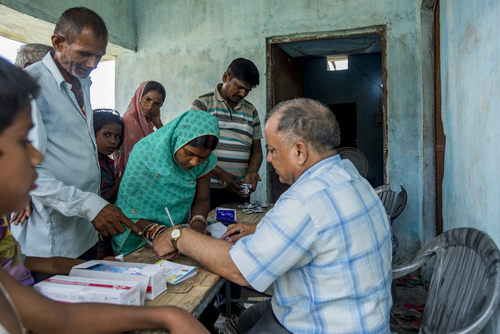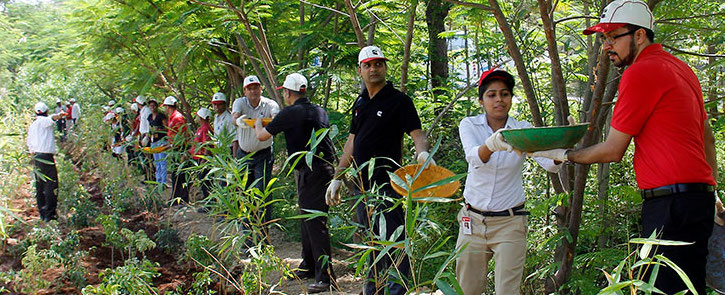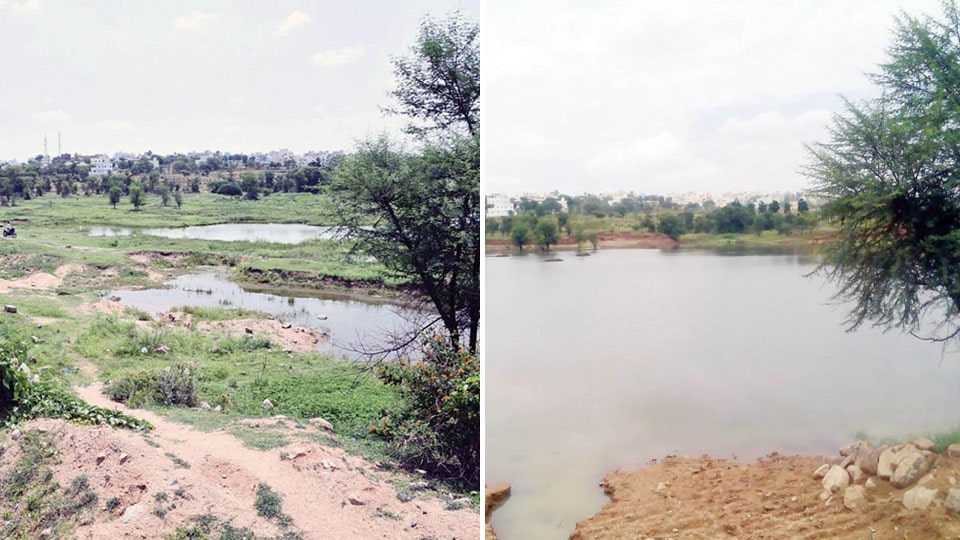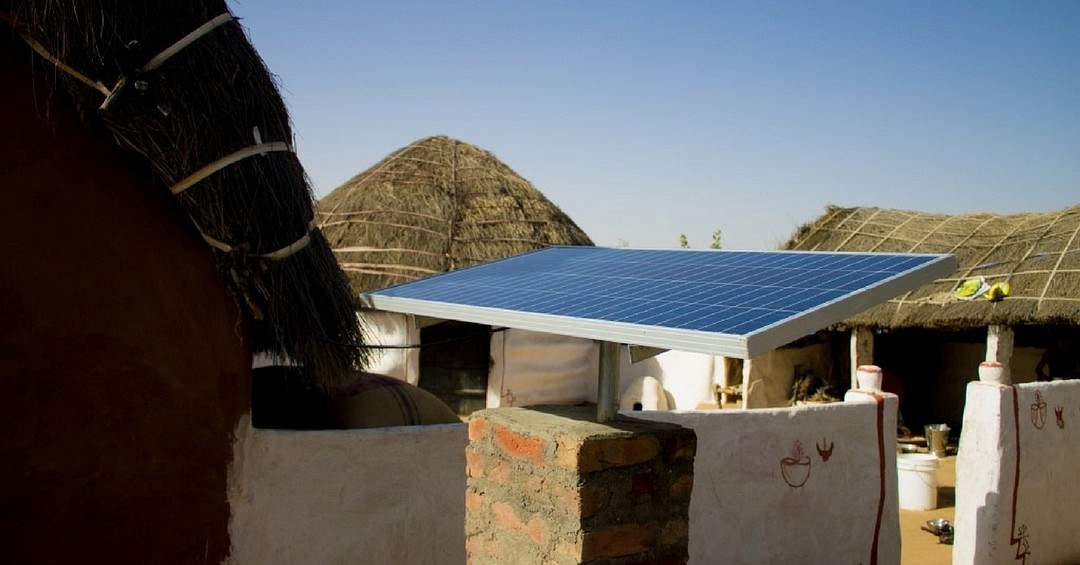The healthcare sector in India is one of the largest and fastest growing industries in India. In 2017, the industry stood at US$ 61.79 billion, and by 2023, it is expected to double by US$ 132.84 billion.
Yet, the Indian healthcare sector is in an ailing condition, as a majority of the investments do not reach the population that is in dire need.
The problem in India is, private hospitals provide excellent care but are beyond the reach of most people. And public hospitals are affordable but are overcrowded and lacks responsiveness.
While the government seems to be doing a lot by allocating a larger budget yearly, it is still far cry from what the country actually needs. In fact, India spends less than 2% of its GDP on healthcare, 1.4% to be exact, making it one of the lowest investors in the sector globally.

This is where investments from private sectors as Corporate Social Responsibility (CSR) in healthcare can make a big difference to society at large.
What’s the current trend in CSR for healthcare in India?
While healthcare does receive a significant amount of funds from the corporations, much of it is focused on health camps and building hospitals or upkeeping its facilities. All these solutions are merely temporary patches. The country needs solutions that will eradicate some of the fundamental problems.
1. Imbalance in infrastructure and population ration
Given the growing population of the country, the current infrastructure is greatly imbalanced. To the point that the doctor-patient ratio in India is 1:1700. This is dangerously low. Major investments in India primarily focused on urban centres while in rural areas are left with a bare minimum.
Under its ‘Comprehensive Healthcare Initiatives’, the NHPC Limited has been providing medical facilities, qualified doctors and medical attendants, in many rural areas of Assam. They also actively partner with government agencies in bringing awareness regarding many diseases.
2. Rural areas need more doctors
Besides infrastructure, the country is short of doctors, particularly in rural areas. While many companies are working in improving in this area, there still a huge gap that needs to be filled. People in rural areas need access to quality healthcare and the government can provide incentives to doctors to spend time in rural/remote areas and take healthcare where it is desperately needed.
Hindustan Petroleum Corporation Limited runs ‘Project Dhanwantari’ across the country. Through this project, they provide basic medical needs for people in remote rural areas by door-to-door with Mobile Medical Vans (MMVs).
3. Contribution to medical insurance
Quality healthcare for many is unaffordable in India. Rather than offering assistance with one-time or temporary treatments, companies could rather offer health insurance in a brand agnostic way, or tie up with pharma companies and provide cheaper medicines.
4. Focus more on mental illness
Support and awareness for mental illness are almost unheard of in rural areas. While the government offers very little support, many organizations like Infosys, TCS, and IDFC are taking up this cause slowly and even those are focused on urban areas only.
There is a lot that organizations can do to make quality healthcare available to all. There is a lot of money and a lot of intent too. All we need is proper channelling.
5. Reaching the unreachable
India is a country with more than 60% of the population living in rural areas and a low level of health facilities. Many villagers are forced to travel hundreds of kilometres to access basic medical treatments and follow up check-ups. In this case, telemedicine can be a great way to help these communities get the best treatment or diagnosis possible.

Parimal Enterprise, a pharma company, has taken up telemedicine as their corporate social responsibility to help the poor and rural households in remote areas. With their initiative like Dox-in-Box, Piramal’s telemedicine projects help people in remote areas access trained doctors. They have set up over 44 telehealth centres across the country, many in partnership with state governments. And help provide relevant information, screenings and follow-ups to patients.
6. Quality healthcare to remote areas
Rural healthcare is one of the biggest challenges the Health Ministry of India is facing. Though the government implementing a lot of policies and programs in trying to reach out to remote places, the effectiveness of these programs is questionable.
Wockhardt Foundation’s MOBILE1000 initiative is one program that has been spearheading in this area. Their aim is to provide free primary healthcare to poor Indians in rural India. With a fully equipped Mobile Health Van, an MBBS doctor and medicines providing ADCR (Awareness, Diagnosis, Cure, and Referral), they have helped over 171.47 lakh patients in different villages across the country.
7. Make India more healthy
India is known for having one of the largest populations of undernourished children in the world. So much so that even basic human rights are denied to millions, leading to stunted growth. Corporate houses can channelise their CSR fund towards building a healthy nation.
Dabur India’s ‘Nutrition Program’ is aimed at eradicating hunger, poverty and malnutrition through provision of food, nutrition supplement, clothes etc. Through this program, they have partnered with various government agencies and NGOs to supplement the nutrition needs of the poor and needy.

Health is a responsibility for one and all. For a country to be prosperous it requires its citizen to be in a healthy condition and think beyond basic survival. While the government is working on many projects, and a helpful hand from the corporate houses can make a huge difference.
 Image Source
2. Forests cover must increase
India’s forests are one of its key environmental factors that makes it such an agriculturally rich country. But this is erasing rapidly with ever-increasing encroachment and depletion of forests. What was once vast green lands, stand today as wastelands. There is a need to bring them back under vegetative cover.
ITC Limited has been working towards this area with its ‘Social Forestry’ program. Under this initiative, they have greened over 33,982 acres. Together with this initiative, Farm Forestry program and Agro-Forestry initiative, the company has not only been increasing the forest cover and tackling climate change but also enhancing farm level employment and generating incomes among the tribal community.
3. Save our rivers
In India, rivers were once considered goddesses. However, this is a fading reality. Currently, India is facing one of the worst water crises in history. Many of its major cities are running dangerously dry and coming close to Day Zero. That’s why companies need to focus on restoring the water quality of our rivers and other water bodies.
Companies like Infosys has been actively involved in improving the local water bodies of Karnataka with their ‘Water Bodies Rejuvenation’ program, committing Rs. 15.32 crores every year.
Image Source
2. Forests cover must increase
India’s forests are one of its key environmental factors that makes it such an agriculturally rich country. But this is erasing rapidly with ever-increasing encroachment and depletion of forests. What was once vast green lands, stand today as wastelands. There is a need to bring them back under vegetative cover.
ITC Limited has been working towards this area with its ‘Social Forestry’ program. Under this initiative, they have greened over 33,982 acres. Together with this initiative, Farm Forestry program and Agro-Forestry initiative, the company has not only been increasing the forest cover and tackling climate change but also enhancing farm level employment and generating incomes among the tribal community.
3. Save our rivers
In India, rivers were once considered goddesses. However, this is a fading reality. Currently, India is facing one of the worst water crises in history. Many of its major cities are running dangerously dry and coming close to Day Zero. That’s why companies need to focus on restoring the water quality of our rivers and other water bodies.
Companies like Infosys has been actively involved in improving the local water bodies of Karnataka with their ‘Water Bodies Rejuvenation’ program, committing Rs. 15.32 crores every year.
 Image Source
4. Clean energy for a greener planet
‘Global warming’ – what was once just an idea has become a living reality today with many parts of the world reaching high temperatures like never before. Due to this, clean energy is getting a lot of attention from industrialists and governments across the globe.
Investing in alternative energy like solar, hydroelectric, biomass and wind power, is something corporate houses can explore for their CSR activity. India has a target of installing 100 GW of solar capacity by 2022 and is still 72 GW short of it. To achieve this ambitious goal, India needs an investment of almost $65 billion.
Some top corporates in India have been making substantial commitments to include renewable energy in their CSR strategy. For example, Tata Steel has installed a 3 MW solar project at Noamudi in Jharkhand. Hindustan Aeronautics Limited has provided solar streetlights and solar water heaters in select villages of south India. Sasken Technologies Limited has powered up the entire village of Belagavadi in rural Karnataka with inverter-less solar DC technology covering about 250 houses.
Image Source
4. Clean energy for a greener planet
‘Global warming’ – what was once just an idea has become a living reality today with many parts of the world reaching high temperatures like never before. Due to this, clean energy is getting a lot of attention from industrialists and governments across the globe.
Investing in alternative energy like solar, hydroelectric, biomass and wind power, is something corporate houses can explore for their CSR activity. India has a target of installing 100 GW of solar capacity by 2022 and is still 72 GW short of it. To achieve this ambitious goal, India needs an investment of almost $65 billion.
Some top corporates in India have been making substantial commitments to include renewable energy in their CSR strategy. For example, Tata Steel has installed a 3 MW solar project at Noamudi in Jharkhand. Hindustan Aeronautics Limited has provided solar streetlights and solar water heaters in select villages of south India. Sasken Technologies Limited has powered up the entire village of Belagavadi in rural Karnataka with inverter-less solar DC technology covering about 250 houses.
 Image Source
5. Keep the soil alive
One of the major threat India is facing is the erosion of our soil. India has a rich history of agriculture dating back to pre-historic times. But due to many negligent and ignorant practices, the soil is being polluted by solid and liquid waste from the industries and large-scale farm business.
Soil determines the quality of the food we consume, and food security is a precondition for any kind of sustainable development. That is why sufficient CSR spending for the protection of top soil in India is the need of the hour. It is the only way to assure food security for a healthy population and the future of India.
Conclusion
These are just some of the issues that need immediate attention. However, there is a whole world of issues to tackle when it comes to environmental activities.
Many experts predict that if the current trends continue many parts of the world will become uninhabitable in merely 10 to 20 years. Therefore, protecting and saving the environment shouldn’t be just a mere CSR strategy but rather a core feature of any organization.
That is why it is necessary for organizations to partner with governments and other NGOs to bring about a sustainable change. And CSR is an essential way to address the numerous that India faces.
Image Source
5. Keep the soil alive
One of the major threat India is facing is the erosion of our soil. India has a rich history of agriculture dating back to pre-historic times. But due to many negligent and ignorant practices, the soil is being polluted by solid and liquid waste from the industries and large-scale farm business.
Soil determines the quality of the food we consume, and food security is a precondition for any kind of sustainable development. That is why sufficient CSR spending for the protection of top soil in India is the need of the hour. It is the only way to assure food security for a healthy population and the future of India.
Conclusion
These are just some of the issues that need immediate attention. However, there is a whole world of issues to tackle when it comes to environmental activities.
Many experts predict that if the current trends continue many parts of the world will become uninhabitable in merely 10 to 20 years. Therefore, protecting and saving the environment shouldn’t be just a mere CSR strategy but rather a core feature of any organization.
That is why it is necessary for organizations to partner with governments and other NGOs to bring about a sustainable change. And CSR is an essential way to address the numerous that India faces. 

 This is where investments from private sectors as Corporate Social Responsibility (CSR) in healthcare can make a big difference to society at large.
What’s the current trend in CSR for healthcare in India?
While healthcare does receive a significant amount of funds from the corporations, much of it is focused on health camps and building hospitals or upkeeping its facilities. All these solutions are merely temporary patches. The country needs solutions that will eradicate some of the fundamental problems.
1. Imbalance in infrastructure and population ration
Given the growing population of the country, the current infrastructure is greatly imbalanced. To the point that the doctor-patient ratio in India is 1:1700. This is dangerously low. Major investments in India primarily focused on urban centres while in rural areas are left with a bare minimum.
Under its ‘Comprehensive Healthcare Initiatives’, the NHPC Limited has been providing medical facilities, qualified doctors and medical attendants, in many rural areas of Assam. They also actively partner with government agencies in bringing awareness regarding many diseases.
2. Rural areas need more doctors
Besides infrastructure, the country is short of doctors, particularly in rural areas. While many companies are working in improving in this area, there still a huge gap that needs to be filled. People in rural areas need access to quality healthcare and the government can provide incentives to doctors to spend time in rural/remote areas and take healthcare where it is desperately needed.
Hindustan Petroleum Corporation Limited runs ‘Project Dhanwantari’ across the country. Through this project, they provide basic medical needs for people in remote rural areas by door-to-door with Mobile Medical Vans (MMVs).
3. Contribution to medical insurance
Quality healthcare for many is unaffordable in India. Rather than offering assistance with one-time or temporary treatments, companies could rather offer health insurance in a brand agnostic way, or tie up with pharma companies and provide cheaper medicines.
4. Focus more on mental illness
Support and awareness for mental illness are almost unheard of in rural areas. While the government offers very little support, many organizations like Infosys, TCS, and IDFC are taking up this cause slowly and even those are focused on urban areas only.
There is a lot that organizations can do to make quality healthcare available to all. There is a lot of money and a lot of intent too. All we need is proper channelling.
5. Reaching the unreachable
India is a country with more than 60% of the population living in rural areas and a low level of health facilities. Many villagers are forced to travel hundreds of kilometres to access basic medical treatments and follow up check-ups. In this case, telemedicine can be a great way to help these communities get the best treatment or diagnosis possible.
This is where investments from private sectors as Corporate Social Responsibility (CSR) in healthcare can make a big difference to society at large.
What’s the current trend in CSR for healthcare in India?
While healthcare does receive a significant amount of funds from the corporations, much of it is focused on health camps and building hospitals or upkeeping its facilities. All these solutions are merely temporary patches. The country needs solutions that will eradicate some of the fundamental problems.
1. Imbalance in infrastructure and population ration
Given the growing population of the country, the current infrastructure is greatly imbalanced. To the point that the doctor-patient ratio in India is 1:1700. This is dangerously low. Major investments in India primarily focused on urban centres while in rural areas are left with a bare minimum.
Under its ‘Comprehensive Healthcare Initiatives’, the NHPC Limited has been providing medical facilities, qualified doctors and medical attendants, in many rural areas of Assam. They also actively partner with government agencies in bringing awareness regarding many diseases.
2. Rural areas need more doctors
Besides infrastructure, the country is short of doctors, particularly in rural areas. While many companies are working in improving in this area, there still a huge gap that needs to be filled. People in rural areas need access to quality healthcare and the government can provide incentives to doctors to spend time in rural/remote areas and take healthcare where it is desperately needed.
Hindustan Petroleum Corporation Limited runs ‘Project Dhanwantari’ across the country. Through this project, they provide basic medical needs for people in remote rural areas by door-to-door with Mobile Medical Vans (MMVs).
3. Contribution to medical insurance
Quality healthcare for many is unaffordable in India. Rather than offering assistance with one-time or temporary treatments, companies could rather offer health insurance in a brand agnostic way, or tie up with pharma companies and provide cheaper medicines.
4. Focus more on mental illness
Support and awareness for mental illness are almost unheard of in rural areas. While the government offers very little support, many organizations like Infosys, TCS, and IDFC are taking up this cause slowly and even those are focused on urban areas only.
There is a lot that organizations can do to make quality healthcare available to all. There is a lot of money and a lot of intent too. All we need is proper channelling.
5. Reaching the unreachable
India is a country with more than 60% of the population living in rural areas and a low level of health facilities. Many villagers are forced to travel hundreds of kilometres to access basic medical treatments and follow up check-ups. In this case, telemedicine can be a great way to help these communities get the best treatment or diagnosis possible.
 Parimal Enterprise, a pharma company, has taken up telemedicine as their corporate social responsibility to help the poor and rural households in remote areas. With their initiative like Dox-in-Box, Piramal’s telemedicine projects help people in remote areas access trained doctors. They have set up over 44 telehealth centres across the country, many in partnership with state governments. And help provide relevant information, screenings and follow-ups to patients.
6. Quality healthcare to remote areas
Rural healthcare is one of the biggest challenges the Health Ministry of India is facing. Though the government implementing a lot of policies and programs in trying to reach out to remote places, the effectiveness of these programs is questionable.
Wockhardt Foundation’s MOBILE1000 initiative is one program that has been spearheading in this area. Their aim is to provide free primary healthcare to poor Indians in rural India. With a fully equipped Mobile Health Van, an MBBS doctor and medicines providing ADCR (Awareness, Diagnosis, Cure, and Referral), they have helped over 171.47 lakh patients in different villages across the country.
7. Make India more healthy
India is known for having one of the largest populations of undernourished children in the world. So much so that even basic human rights are denied to millions, leading to stunted growth. Corporate houses can channelise their CSR fund towards building a healthy nation.
Dabur India’s ‘Nutrition Program’ is aimed at eradicating hunger, poverty and malnutrition through provision of food, nutrition supplement, clothes etc. Through this program, they have partnered with various government agencies and NGOs to supplement the nutrition needs of the poor and needy.
Parimal Enterprise, a pharma company, has taken up telemedicine as their corporate social responsibility to help the poor and rural households in remote areas. With their initiative like Dox-in-Box, Piramal’s telemedicine projects help people in remote areas access trained doctors. They have set up over 44 telehealth centres across the country, many in partnership with state governments. And help provide relevant information, screenings and follow-ups to patients.
6. Quality healthcare to remote areas
Rural healthcare is one of the biggest challenges the Health Ministry of India is facing. Though the government implementing a lot of policies and programs in trying to reach out to remote places, the effectiveness of these programs is questionable.
Wockhardt Foundation’s MOBILE1000 initiative is one program that has been spearheading in this area. Their aim is to provide free primary healthcare to poor Indians in rural India. With a fully equipped Mobile Health Van, an MBBS doctor and medicines providing ADCR (Awareness, Diagnosis, Cure, and Referral), they have helped over 171.47 lakh patients in different villages across the country.
7. Make India more healthy
India is known for having one of the largest populations of undernourished children in the world. So much so that even basic human rights are denied to millions, leading to stunted growth. Corporate houses can channelise their CSR fund towards building a healthy nation.
Dabur India’s ‘Nutrition Program’ is aimed at eradicating hunger, poverty and malnutrition through provision of food, nutrition supplement, clothes etc. Through this program, they have partnered with various government agencies and NGOs to supplement the nutrition needs of the poor and needy.
 Health is a responsibility for one and all. For a country to be prosperous it requires its citizen to be in a healthy condition and think beyond basic survival. While the government is working on many projects, and a helpful hand from the corporate houses can make a huge difference.
Health is a responsibility for one and all. For a country to be prosperous it requires its citizen to be in a healthy condition and think beyond basic survival. While the government is working on many projects, and a helpful hand from the corporate houses can make a huge difference.